Save the proboscis monkeys’ forest!
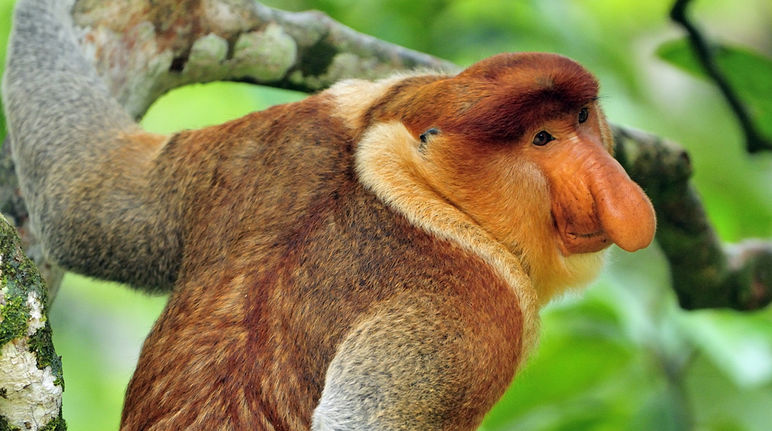 Destroying peat forests robs proboscis monkeys of their habitat. (© Mark Louis Benedict - CC BY-NC-ND 2.0)
Destroying peat forests robs proboscis monkeys of their habitat. (© Mark Louis Benedict - CC BY-NC-ND 2.0)
BLD, a palm oil company, is destroying irreplaceable habitat and setting off a veritable carbon bomb by draining and burning 14,000 hectares of peat forest in the Malaysian state of Sarawak. Local activists are calling on the state’s Chief Minister to stop this crime against the planet. Please lend them your voice.
Call to actionTo: Tan Sri Adenan, Chief Minister of Sarawak
“The palm oil company BLD is destroying 14,000 hectares of peat forest for plantations. Please prevent this crime against the planet.”
“In one of BLD Plantations’ concessions in Sibu rampant peatland clearing is ongoing ... We’re talking very deep peat here and it must stop immediately,” reports Upreshpal Singh of the NGO Friends of the Orangutans (FOTO). The forests of the region are the habitat of numerous species unique to Sarawak, including proboscis monkeys, rare birds and bats.
Peat forests as carbon sinks
Peat forests store vast quantities of carbon. If BLD were to clear all of the land in its concession area in Sibu province alone, it would release 37 million tons of CO2 into the atmosphere – a catastrophic prospect, considering that the peat fires currently burning in Malaysia and Indonesia are already emitting more CO2 than the entire US economy.
Furthermore, Wetlands International scientists point out that the destruction of peat forests could lead to catastrophic flooding – a warning that also applies to the region BLD is clearing.
The numbers are disheartening: BLD has already planted 28,000 hectares of oil palms – 6,000 hectares of that land were once peat forests. Now, another 14,000 hectares are slated to fall.
FOTO has satellite images documenting that BLD has already begun clearing peat forest in Sibu province and has planted oil palms on the land. The company apparently intends to clear the rest of the forest in its concession area within the next two years.
BLD also stands accused of landgrabbing: Matek Geram of the Sarawak Dayak Iban Association (SADIA), a human rights NGO, argues: “People have been living on this land for centuries. BLD cleared it illegally.” He can document his allegations with GPS data.
Upreshpal Singh and Matek Geram are calling on Sarawak’s Chief Minister to stop BLD from clearing further land. Please lend them your voice to protect Sarawak’s peat forests.
Proboscis monkeys (Nasalis larvatus) can only be found on the island of Borneo – in Brunei, the Indonesian Kalimantan provinces and the Malaysian states of Sabah and Sarawak. Their population is declining steadily as their habitat in coastal rainforests, peat forests, mangroves and riverbanks disappears. Less than 1,000 proboscis monkeys still live in Sarawak. The International Union for Conservation of Nature (IUCN) has classified them as endangered.
Peat forests and proboscis monkeys on the brink
Peat forests currently cover more than 27 million hectares of land in Southeast Asia – an area that is dwindling rapidly. Logging and the development of plantations – for which the forests are drained and often burned – are to blame. According to Wetlands International, less than ten percent are still intact.
Peat forest ecosystems play a vital role as carbon sinks: according to experts, they store a total of 42 billion tons of CO2. Burning the forests releases carbon into the atmosphere that had been safely stored in the peat for centuries. Indonesia is one of the world leaders in carbon emissions due to the destruction of the peat forests.
Peat layers are up to 20 meters thick and consist of organic material and 90 percent water. When drained, the ground subsides several meters, making the land vulnerable to flooding. As the land reaches sea level, salt water can intrude, rendering the land useless for the plantations for which the peat forests were originally cleared – a lose-lose proposition.
BLD holds 51,000 hectares of land
The concession areas of BLD Plantation Berhad cover 51,000 hectares in the Malaysian state of Sarawak. 60 percent of the palm oil company’s land is currently used for plantations. The company operates two oil mills and a refinery Kirana.
Bunge, a multinational agribusiness company, announced that it would not purchase any more products from Kirana after BLD’s plans to clear 14,000 hectares of peat forest became known.
To: Tan Sri Adenan, Chief Minister of Sarawak
Excellency,
After your election, you promised that no more forests would be converted into oil palm plantations in Sarawak.
The palm oil company BLD Plantations Berhad, however, plans to destroy 14,000 hectares of peat forest within the next two years. Such forests are highly effective carbon stores and their destruction is a major factor in climate change. Scientists from the NGO Wetlands International urgently warn against the devastating consequences of their destruction. Agriculture and plantations must be banned in such wetlands.
Furthermore, the human-rights organization SADIA claims to have evidence that BLD is unlawfully appropriating the land of local people.
Please take immediate action to ensure that BLD and other companies do not destroy yet more forest in Sarawak.
Kind regards,
The issue – rainforest on our dinner tables and in our fuel tanks
At 66 million tons annually, palm oil is the most commonly produced vegetable oil. Its low world market price and properties that lend themselves to processed foods have led the food industry to use it in half of all supermarket products. Palm oil can be found in frozen pizzas, biscuits and margarine, as well as body creams, soaps, makeup, candles and detergents.
Few people realize that almost half of the palm oil imported into the EU is used as biofuel. Since 2009, the mandatory blending of biofuels into motor vehicle fuels has been a major cause of deforestation.
Oil palm plantations currently cover more than 27 million hectares of the Earth’s surface. Forests and human settlements have been destroyed and replaced by “green deserts” containing virtually no biodiversity on an area the size of New Zealand.
The impact – suffering and death in producer countries, climate havoc
The warm, humid climate of the tropics offers perfect growth conditions for oil palms. Day after day, huge tracts of rainforest in Southeast Asia, Latin America and Africa are being bulldozed or torched to make room for more plantations, releasing vast amounts of carbon into the atmosphere. As a consequence, Indonesia – the world’s largest producer of palm oil – temporarily surpassed the United States in terms of greenhouse gas emissions in 2015. With their CO2 and methane emissions, palm oil-based biofuels actually have three times the climate impact of traditional fossil fuels.
Palm oil is not only bad for the climate: As their forest habitat is cleared, endangered species such as the orangutan, Borneo elephant and Sumatran tiger are being pushed closer to extinction. Smallholders and indigenous people who have inhabited and protected the forest for generations are often brutally driven from their land. In Indonesia, more than 700 land conflicts are related to the palm oil industry. Human rights violations are everyday occurrences, even on supposedly “sustainable” and “organic” plantations.
As consumers, we are largely unaware of these broader issues, yet our daily palm oil consumption also impacts our health: refined palm oil contains large amounts of harmful fatty acid esters that are known to damage DNA and cause cancer.
The solution – a revolution on our dinner tables and in our fuel tanks
Only 70,000 orangutans still roam the forests of Southeast Asia, yet the EU’s biofuels policy is pushing them to the brink of extinction. Every new plantation on Borneo is destroying a further piece of their habitat. Stepping up the pressure on policymakers is a must if we want to save our tree-dwelling kin. Apart from that, however, there is still a lot we can do in day-to-day life.
Follow these simple tips to recognize, avoid and combat palm oil:
- Enjoy a home-cooked meal: Use your imagination: why not try almond-coconut-pear biscuits? Or pizza with potato and rosemary? A meal cooked from fresh ingredients beats processed foods containing palm oil every time. Oils such as sunflower, olive, rapeseed or flaxseed are ideal for cooking and baking.
- Read labels: As of December 2014, labeling regulations in the EU require food products to clearly indicate that they contain palm oil. However, in the case of non-food items such as cosmetics and cleaning products, a wide range of chemical names may still be used to hide the use of palm oil. A quick check of your favorite search engine will turn up palm oil-free alternatives, however.
- Remember that the customer is king: Ask your retailers for palm oil-free products. Write product manufacturers and ask them why they aren’t using domestic oils. Companies can be quite sensitive to issues that give their products a bad name, so inquiring with sales staff and contacting manufacturers can make a real difference. Public pressure and increased awareness of the problem have already prompted some producers to stop using palm oil.
- Sign petitions and write your elected representatives: Online campaigns put pressure on policymakers responsible for biofuels and palm oil imports. Have you already signed all of Rainforest Rescue’s petitions?
- Speak out: Protest marches and creative action on the street raise public and media awareness of the issue, which in turn steps up the pressure on policymakers.
- Leave your car at home: Whenever you can, walk, ride a bicycle or use public transport.
- Be informed and inform others: Big Business and governments would like us to believe that biofuels are good for the climate and that oil palm plantations are sustainable. Spread the word – share this information with your family and friends and encourage them to rethink their consumption habits. It’s in our hands!
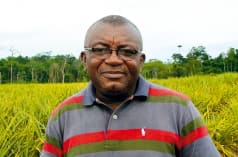
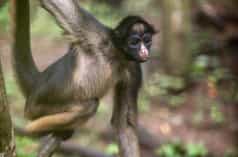
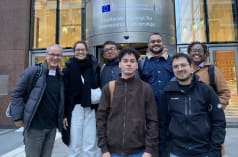








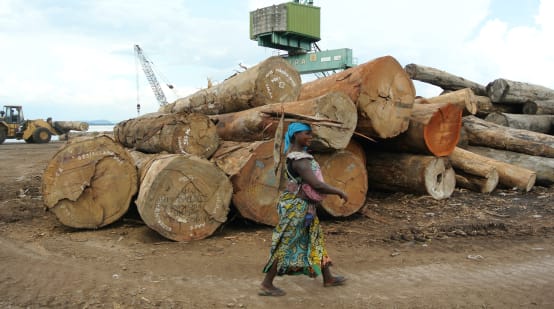
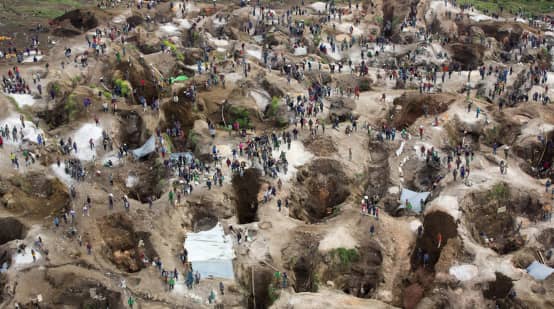
 Recent successes
Recent successes